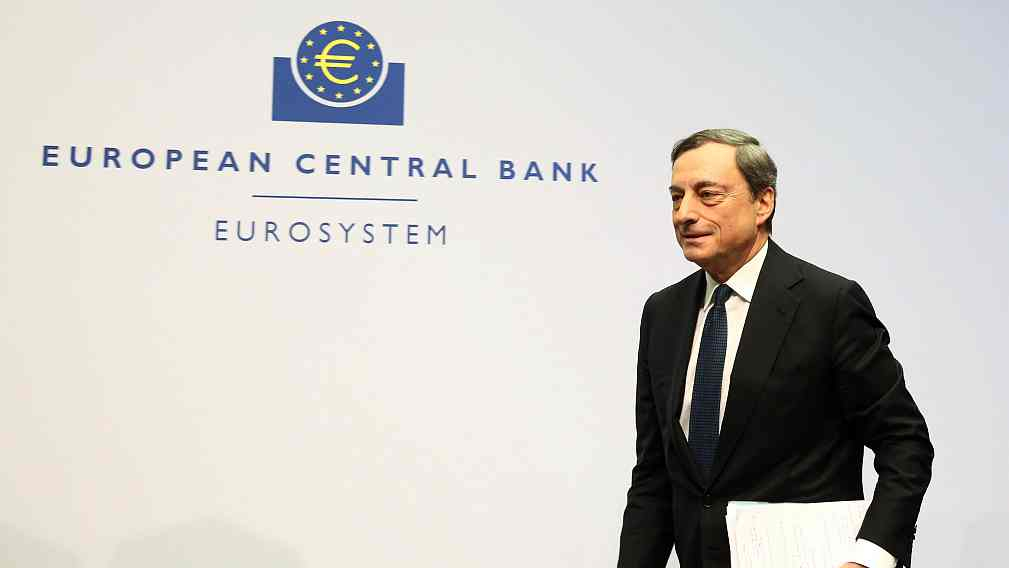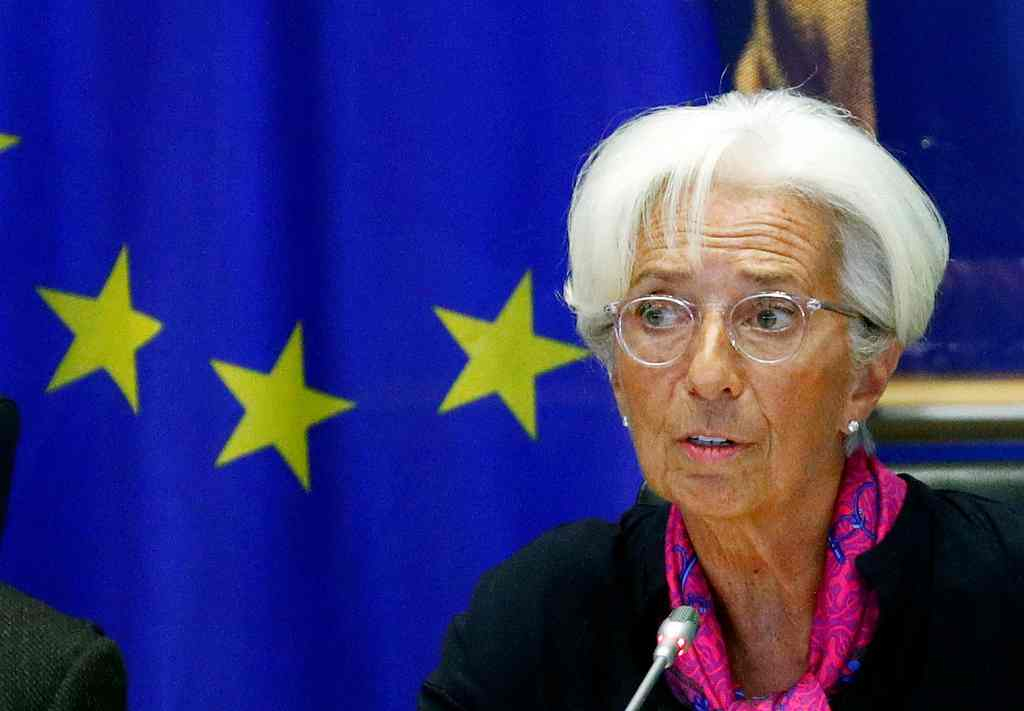
The European Central Bank (ECB) on Thursday decided to keep the key interest rates for the eurozone unchanged and warned of the persistent downside risks for the eurozone economy.
The eurozone base interest rate will remain at 0.00 percent, with the marginal lending rate and deposit rate remaining at 0.25 percent and minus 0.50 percent respectively.
The announcement was made after a meeting of the ECB Governing Council, the last such meeting under the tenure of ECB President Mario Draghi, who will be succeeded by Christine Lagarde from November 1.
Read more: Lagarde to succeed Draghi as president of European Central Bank
The Governing Council reiterated that it expects key interest rates to remain at their present or lower levels until it has seen the inflation outlook robustly converge to a level sufficiently close to, but below, two percent within its projection horizon, and such convergence has been consistently reflected in underlying inflation dynamics.
In its last monetary policy meeting in September, the ECB announced a host of easing measures, including a rate cut and a massive bond-buying program, drawing mixed responses from analysts.

Christine Lagarde, the next president of the European Central Bank. /VCG Photo
Christine Lagarde, the next president of the European Central Bank. /VCG Photo
On Thursday, Draghi said the comprehensive package of policy measures decided at the last meeting "provides substantial monetary stimulus" which will contribute to a further easing in borrowing conditions for firms and households.
He said the central bank's previous assessment of a protracted weakness in euro area growth dynamics, the persistence of prominent downside risks and muted inflation pressures have all been confirmed by the incoming data.
"Everything that has happened since September has shown abundantly that the Governing Council's determination to act was justified," he said.
Draghi said that "the risks surrounding the euro area growth outlook remain on the downside," citing the prolonged presence of uncertainties related to geopolitical factors, rising protectionism and vulnerabilities in emerging markets.
He noted that the lower likelihood of a hard Brexit has improved the situation, but the uncertainty is still there. The weakness in the manufacturing sector seems to have spilled over to the services sector, with a "sharp decline" in the euro area services PMI, he said.
Headline inflation is likely to decline slightly further before rising again at the end of the year, he said, stressing that "an ample degree of monetary accommodation is still necessary" for the continued sustained convergence of inflation to the ECB goal.
He also reiterated the plea for structural policies and fiscal policies in order to reap full benefits from the monetary policy measures and to raise the longer-term growth potential of the euro area.
However, he admitted that the issue concerning fiscal policy is complicated. He spoke of the importance of having the so-called "central fiscal capacity" in the euro area but said it should be designed in a way that does not create moral hazards.
The eight-year tenure of Draghi will officially end on Oct. 31. The Italian economist took office amid European debt crisis and famously pledged to do "whatever it takes" to save the euro in 2012.
Looking back, Draghi said Thursday that the experience as president of the ECB has been "intense, profound, and fascinating."
"If there is one thing that I'm proud of, then it is that we have always pursued our mandate. Never give up," Draghi said.
The ECB policy decisions announced Thursday are largely in line with market expectations. Dutch bank ABN Amro believed the latest comments set the scene for downgrades of the ECB's growth and inflation projections in coming meetings as well as additional monetary policy stimulus.
Source(s): Xinhua News Agency